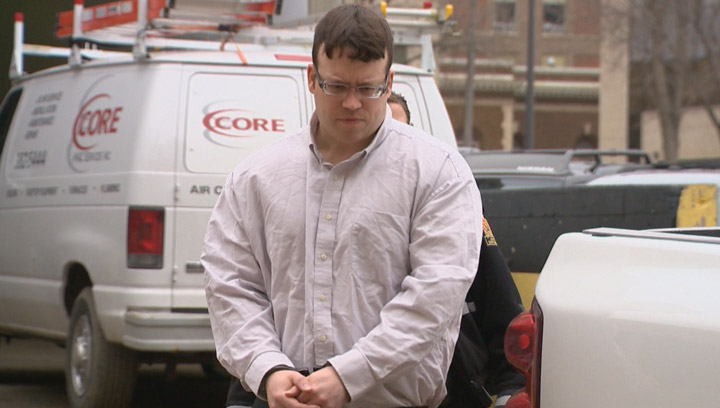SASKATOON – The Douglas Hales first-degree murder trial continued with the judge deciding whether or not a psychologist brought in by the defence would be able to testify on any portion of the trial.

On Tuesday, Dr. Marc Patry took the stand at Saskatoon’s Court of Queen’s Bench.
Patry, a psychologist specializing in behavioral psychology at Saint Mary’s University in Nova Scotia, has done research on interrogations, confessions, law and correctional psychology.
For much of the morning, court heard Patry qualify his credentials pertaining to false confessions including a number of papers he’s published in this area.
Co-authoring Using the “Mr. Big” technique to elicit confessions: successful innovation or dangerous development in the Canadian legal system?, Patry said that “Mr. Big” stings are for the most part a Canadian phenomenon.
He noted that a huge proportion of people who have confessed to having committed a false crime were under stress.
Patry defended his work during cross examination and admitted there is no data on how many confessions in the country have been false.
“He can’t give his expert opinion on things very much unproven,” said Crown Prosecutor Matthew Miazga.
On Tuesday afternoon, Justice Allbright ruled that he would not allow Patry to testify on the reliability of statements Hales gave to police, a confession Hales made after his arrest on Aug. 10, 2008 for the murder of Daleen Bosse.
The interrogation video is part of a “voir dire” therefore it is not yet considered evidence.
Allbright will rule Wednesday whether the video confession is admissible and if the expert can testify on statements made by Hales during an RCMP “Mr. Big” sting operation.


Comments